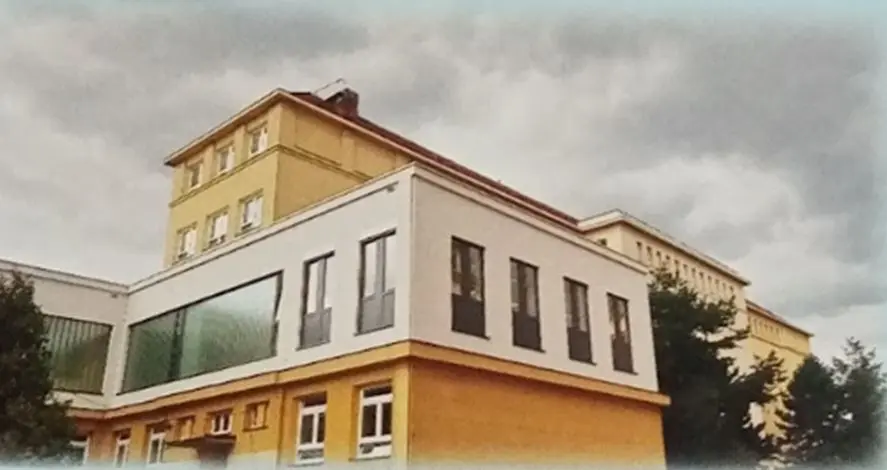ZŠ Jeseniova is a large state primary school for children aged 6–15. It is located in the Prague 3 – Žižkov district. Currently, the school has 667 students and nearly 60 teachers. Since 1972, the school has been closely cooperating with the sports club SK Jeseniova. Each year, we open one sports class for the upper primary level, focusing on athletics. Our school collaborates with various professional institutions and organisations, such as the Faculty of Education at Charles University and META, o.p.s. We also conduct testing for students from our partner international school, Park Lane International School, which has approximately 250 students. We are gradually incorporating elements of the Step by Step pedagogical programme into our teaching.
We focus long-term on developing essential skills. We emphasise interdisciplinary links, strengthen students' competencies in information and communication technologies, and support independent, active, and responsible learning. We believe that education is a shared journey, and we strive to actively involve parents and other family members in school life.
ZŠ Jeseniova joined the Skills Builder programme in 2019. The implementation is gradual and voluntary, based on the decisions of individual teachers and considering the composition and needs of specific classes. Currently, the programme is primarily active in lower primary classes, where it has already been fully integrated into teaching. Starting in September 2025, teachers will also begin using the Skills Builder passports, which help track the individual progress of each student.
The school’s after-school club is also involved in the programme, working with skills within its own thematic plans. The skills are intentionally used beyond regular lessons in form time, peer mediation, class projects, and group work. Implementing Skills Builder brings a clear structure for essential skills development into the school environment and contributes to cultivating interpersonal relationships, improving student cooperation, and increasing engagement both in and outside the classroom.

Last year, this development was part of a whole-school project, where each month we focused on one specific skill. This school year, essential skills are being integrated across the whole school (e.g., through a year-round, whole-school project). The main goal for teachers is to actively use the language and principles of the Skills Builder methodology directly in subject lessons. The methodology is clearly available on the school’s website.
A support group, called skills leaders, meets monthly with participating teachers to share experiences, plan strategy, and coordinate activities. Part of our work includes creating and updating noticeboards in hallways and classrooms that visualise and reinforce the skills. We also include skill practice in form periods. We aim to share the methodology beyond our school by engaging nearby kindergartens and working with education students who carry out their training and practice teaching with us. Thus, essential skills naturally become part of their pedagogical practice.

We introduce Skills Builder methodology from the earliest grades. This makes essential skills a natural part of teaching from the very beginning of school. Teachers plan their inclusion deliberately across subjects, which strengthens their integration into everyday learning.
To ensure consistency, the logos of all eight essential skills are clearly displayed in classrooms as a permanent reminder for students and teachers. Skills are regularly reflected upon—students recognise which skill they are developing and how they have improved. Teachers document their activities in a shared team folder, where they share observations, evaluate progress, and provide concrete examples of skill development. This reflection system supports continuity and persistence across grades and subjects. Self-assessment has gradually been integrated into quarterly evaluations. We observe gradual improvements in students’ self-reflection, willingness to cooperate, communication, and classroom engagement.
Parents are regularly informed about the focus on essential skills through parent-teacher meetings, the school website, and project outputs. During events like "D-Day," they can see how their children apply these skills in practice. In the upcoming school year, we plan to expand the use of skill passports and continue training new lower and upper primary teachers to anchor the methodology throughout the school.

We adapted the original skills record books to better suit our context and make them understandable for students from years 1 to 9. A key tool for measuring progress are the Parent-Pupil-Teacher meetings, where students self-assess and reflect on which essential skills they’ve improved, what they’re doing well, and what they want to work on next. Self-reflection also occurs during quarterly evaluations.
The methodology is also used in peer mediation, which enables students to actively participate in resolving minor conflicts. Trained upper primary students act as mediators, helping younger students understand situations, listen, and find common solutions. Another essential tool is the electronic class register, where teachers record whether the Skills Builder methodology was used in the lesson. This overview supports feedback and helps plan future teaching to ensure balanced and long-term skill development.

Every activity or task in lessons is consciously linked to a specific skill, and often to a clearly defined step appropriate to the students’ current level. This helps students clearly understand what they are developing and why—the goal isn’t just to “do something,” but to improve in a specific area (e.g., active listening or teamwork).
This focus also benefits teachers by helping them differentiate learning based on skill levels and design activities that are appropriately challenging. It supports feedback too—teachers can give precise comments on what students are doing well and where they can improve, making assessment clearer and motivating. The process uses age-appropriate language and happens through written reflection or guided discussion. This helps students reflect on their behaviour, understand their learning, and take responsibility for it from an early age.
Teachers are also supported and assessed by our deputy for lower primary, who evaluates how the methodology is implemented in each class and gives feedback and recommendations, ensuring consistent and meaningful integration of skills across all year groups.

Teachers actively using the Skills Builder methodology include skills regularly, whether through short activities, projects, or as part of daily tasks. They document and reflect on their experiences in shared files, which helps maintain momentum and inspire each other.
Another key tool for regular practice is project days, which offer focused opportunities to practise specific skills. These days include conscious naming of skills and steps and their practical application in solving real tasks. Form periods also provide regular time for skill practice, often through targeted activities focusing on cooperation, emotional regulation, or listening. Skills are not practised in isolation but integrated into regular teaching across subjects. For example, skills are developed while maintaining a cultural journal. Students also practise essential skills during school events like fairs, project presentations for parents, or peer reading sessions with younger students. These situations show how skills can be used beyond classroom learning.

We place great emphasis on helping students realise that essential skills aren’t just for school—they have real relevance in everyday and professional life. Therefore, we intentionally create opportunities for their development in real-life situations, beyond standard lessons.
Project-based learning, off-timetable days, and meetings with professionals (e.g., through “A Day for School” with a police officer, carpenter, or HR manager) play a key role. Students gain a clear understanding of the importance of essential skills in different careers. Involvement in community and intergenerational events, like author readings in kindergartens and senior homes, naturally fosters empathy, responsibility, and confidence.
We also cooperate with the Faculty of Education at Charles University, whose students engage in research and essential skill development with us, helping to integrate these skills into teacher training. Students also apply their skills during activities with kindergartens, joint events with the KUDYKAMPUS grammar school, Meta’s “Žižkov Adventurer” programme, or family events like skating. All these activities strengthen students' belief that essential skills are meaningful and useful—thus fulfilling a key principle of the Skills Builder methodology: connecting school learning with the wider world.
We plan to continue developing essential skills systematically across the whole school. We want to build on what we’ve already achieved and reinforce consistency, clarity, and practical integration into daily school life. In the coming period, we will focus on:
deeper work with specific skill steps, including their clear naming and visibility in lessons,
expanding student self-reflection—supporting awareness of progress through concrete examples and sharing,
strengthening teacher collaboration across grades to ensure smooth and continuous skill development from years 1 to 9,
creating new opportunities to connect skills with real-world contexts, e.g., through community projects, public presentations, or collaboration with professionals.
We also see great value in building partnerships with other schools focusing on essential skills. Sharing experiences, exchanging ideas, and collaborating on joint activities (e.g., project days, student meetups, peer visits) could bring new energy and improve quality and motivation for all involved. Our goal is for essential skills development to no longer be seen as an add-on to teaching, but as a natural and important part of education that matters for students’ lives—now and in the future.
























